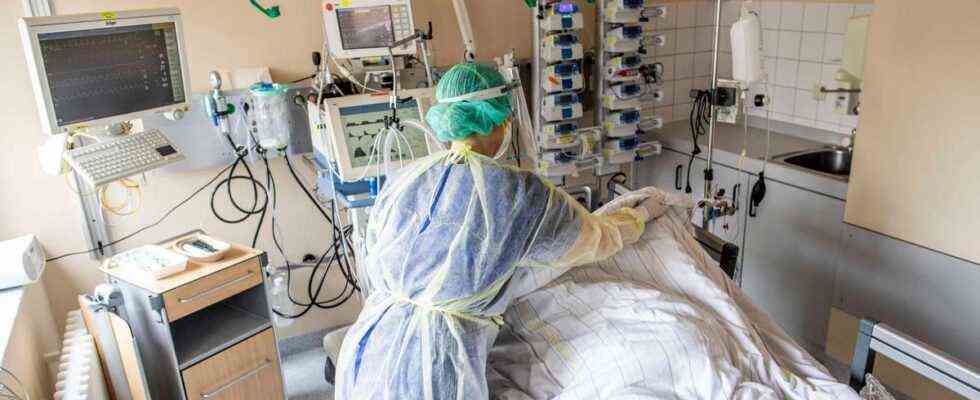fromTanja Banner
conclude
During the first Corona wave in Great Britain, some people were not infected with Corona despite the high risk of infection. Researchers are following the lead.
London / Frankfurt – The Sars-Cov-2 coronavirus has kept the world busy since the beginning of 2020. More than 260 million people worldwide were infected with the virus, and more than 5.1 million people have died so far in connection with Covid-19 (source: JHU, as of November 27, 2021). However, researchers in the UK noticed that some people were not familiar with it corona infected – although they worked on the front lines in the hospital and were at great risk of infection there. In a study that was accepted for publication by the journal Nature and was published online in advance, researchers now explain why this is so.
Researchers led by Leo Swadling from University College London looked at 58 people who worked in hospitals in London and did not become infected with corona, although they were at a high risk of infection during the first wave of the pandemic. No PCR test was positive in these 58 people over a period of four months, and no antibodies were found either, while a number of colleagues became infected with corona during the same period.
Corona study: have T cells broken off an infection? “I’ve never seen anything like it”
In 20 of the study participants, the researchers found elevated T-cell values, in 19 they also found the immune protein IFI 27, which the researchers describe in their study as a “typical early signature of Sars-CoV-2”. The immune protein suggests an interrupted infection, the researchers continue. Apparently, the coronavirus had penetrated the body but was fended off before it could cause damage. Nature quotes non-study immunologist Shane Crotty (La Jolla Institute for Immunology) as saying, “I’ve never seen anything like it. It is very surprising that T cells could be able to control an infection so quickly. “
The authors ‘theory: T cells in the subjects’ bodies have switched off a protein cluster of the virus that is responsible for reproduction. They found evidence of this in the blood of the study participants: of the 58 participants, more people had T cells in their blood that recognized the cluster than in a comparison group that had gone through a corona infection. The researchers also found that T cells recognized Sars-CoV-2 – and above all the protein cluster – in blood samples from the pre-Corona era. These T cells could have been caused by infections with other coronaviruses – a so-called cross infection – the researchers suspect.
Corona study: what role do T cells play in an infection?
But there are also critical voices: The study has no clear evidence that the test subjects actually had Sars-CoV-2 particles in their bodies. That makes it difficult to infer the role of T cells, Nature quotes immunologist Donna Farber. Mala Maini, a co-author of the study, confirmed to Nature that her team had no direct confirmation of canceled corona infections. However, the timing of the virus in Great Britain is well documented and it is probably no coincidence that the increased T cells were found in the blood of the participants at a time when numerous patients with Covid-19 had come to British hospitals . “The timing is so clear,” emphasizes Maini.
Background: what are T cells?
T cells are blood cells that are made in the bone marrow. They play an important role in fighting dangerous substances in the human body. They are focused on certain pathogens and destroy cells that are infected by these pathogens.
Corona study: can T cells terminate a corona infection?
If the researchers’ theories are correct, that does not mean that they also apply to the Delta variant, stressed immunologist Marcus Buggert to Nature. It is also possible that only people such as hospital staff who are regularly exposed to respiratory viruses could interrupt an infection. The researchers themselves warn against the conclusion that a previous cold could protect against infection with Sars-CoV-2. It is also unclear whether the T cells function equally well in the Delta variant, as the study was carried out before this variant existed.
But despite all concerns, the study can help in the fight against Corona. The biomedical scientist Alexander Edwards (University of Reading) explains to the Science Media Center how the study could help in the design of a completely new type of vaccine. “A vaccine that increases T-cell immunity against various viral protein targets that are shared by many different coronaviruses would complement our vaccines that induce neutralizing antibodies.” Several companies are currently working on T-cell vaccines against Corona. A British company plans to start clinical trials in January 2022. (tab)

